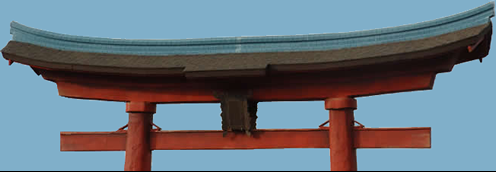


“The gift of Truth excels all other gifts.”
The Buddha
Rest in natural great peace
this exhausted mind
beaten helpless by karma and neurotic thought,
like the relentless fury of the pounding waves
in the infinite ocean of samsara.
Nyoshul Khenpo Rinpoche
“Samsara is the mind turned outwardly, lost in its projections. Nirvana is the mind
turned inwardly, recognizing its true nature.”
Tulku Urgyen Rinpoche
“The Mind cannot be confused, but it is confusion.”
Dennis Genpo Merzel Roshi
“Remember that not getting what you want is sometimes a wonderful stroke of luck.”
The Dalai Lama
“A snowflake never falls in the wrong place.”
Zen saying
“The only difference between non-enlightened people and enlightened people is that
non-enlightened people believe there is such a thing as non-enlightened people and enlightened
people, while enlightened people know there is no such thing as non-enlightened people and
enlightened people.”
Zen saying
When zen master Maezumi Roshi still was a zen trainee in his younger years, he often had private interviews with his teachers
as part of his training. During these meetings he regularly voiced his personal opinions. One of his teachers
always responded to those personal points of view by only saying “So desu ka?”, which means “Is that so?”
The young Maezumi often wanted a little more support from this teacher than just that short utterance, but that was all
he ever got from him when it came to his personal ideas.
Many years later, after becoming a teacher himself, Maezumi Roshi decided to visit this old master again. During his visit,
he told the master that now that he himself had become an enlightened master, he had finally gained enough insight to know why the old
master had always only responded with “So desu ka?” to his egotistical ideas. At that, the old master
responded by only saying “So desu ka?”
Zen anecdote
A man once came to see the Buddha to get help with his problems. After the man had told the Buddha one of his problems
and asked for help, the Buddha replied: “I cannot help you get rid of that problem.”
The man was surprised that the Buddha could not help him in this regard, but he told the Buddha
about another problem; he thought to himself that the Buddha should at least be able to help
him with that problem. But the Buddha told him “I cannot help you with that problem either.”
The man started to get impatient. He said: “How can it be that you are the perfectly Enlightened Buddha,
when you can’t even help people get rid of their problems?”
The Buddha answered: “You will always have 83 problems in your life. Sometimes a problem will
go, but then another problem will come. I cannot help you with that.”
The baffled man asked the Buddha: “But, what can you help me with, then?” The Buddha
replied: “I can help you get rid of your 84th problem.” The man asked: “But what is my 84th
problem?” The Buddha replied: “That you want to get rid of your 83 problems.”
Buddhist anecdote
There once was a poor man who lead a donkey every day across the border from one kingdom to another. The border guards
suspected that he was smuggling something, so each day as the man passed the border they carefully searched the man and the
donkey’s saddlebags. But they didn’t find anything.
After a while the man starts to wear more expensive clothing
and buys a large house. The border guards redouble their efforts to inspect the man and his donkey closely because they now
are certain the man is smuggling something. But in their daily searches of the man and the saddlebags they never come up
with anything but straw.
After 30 years of this daily routine, one of the border guards retires. One day when the retired
border guard is walking across the street, he runs into the man and says “Listen, I am no longer a border guard and I can
no longer hurt you. I promise I will never tell anyone, but just for my peace of mind, please tell me what you have been
smuggling all those years.” The man replies “Because I know that you can no longer arrest me, I will tell you. I was
smuggling donkeys.”
A parable for the search for Enlightenment
A wise farmer had worked his crops for many years. One day his horse ran away. Upon hearing this news, his neighbors came to
visit him. “Such bad luck,” they said sympathetically. “Maybe,” the farmer replied. The next morning the horse returned,
bringing with it three other wild horses. “How wonderful,” the neighbors exclaimed. “Maybe,” the farmer replied.
The following day, his son tried to ride one of the untamed horses and was thrown off the horse and broke his leg. The
neighbors again came to offer their sympathy on this misfortune. “Maybe,” answered the farmer. The day after, military officials came
to the village to draft young men into the army. Seeing that the farmer’s son’s leg was broken, they passed him by. The
neighbors congratulated the farmer on how well things had turned out. “Maybe,” said the wise farmer.
An allegory for the relativity of ‘good’ and ‘bad.’